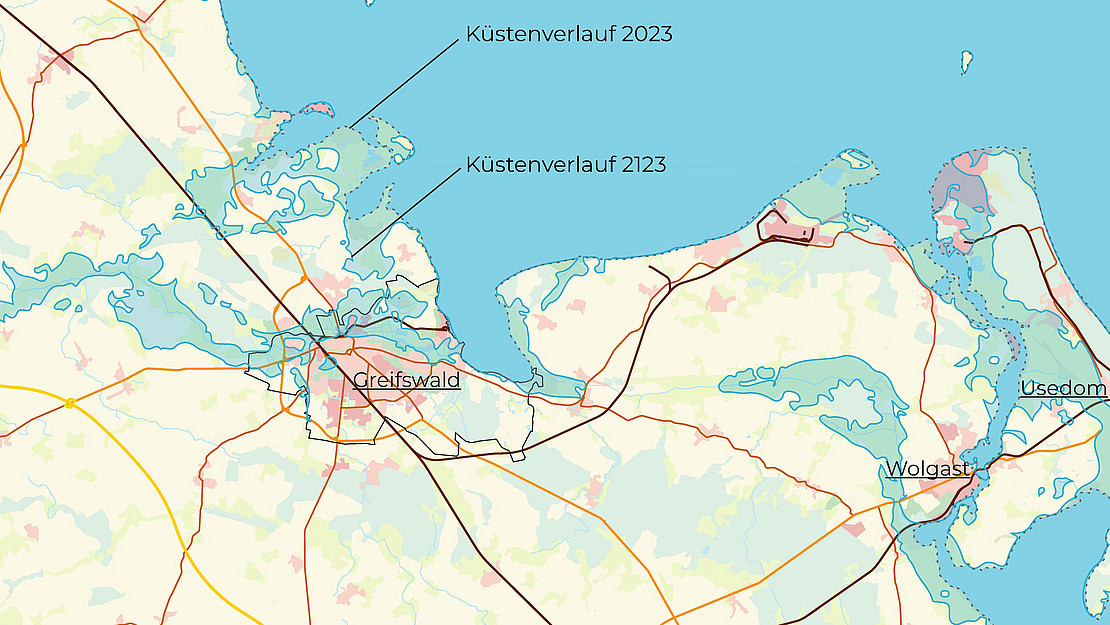This page contains automatically translated content.
If the Baltic coast is flooded, what will happen to the cities?

The initial question of the student project is: "Will Greifswald become the Venice of the 21st century?" In a master plan they have designed, the 28 participants describe their ideas for a future-proof and livable region in 100 years. The project is led at the Department of Architecture, Urban Planning, Landscape Planning (ASL) by Prof. Dr. Harald Kegler, Department of Urban Planning and Planning History. "Part of the competence of urban planners is to develop visions and concepts that are long-term," Kegler said.
A central component of the master plan is the predicted new course of the Baltic Sea coast. This is because many consequences of climatic changes will become visible here more quickly than in other parts of the world: sea-level rise, flooding or extreme weather events. The students have chosen a pessimistic scenario of the Intergovernmental Panel on Climate Change, which assumes a global sea level rise of one meter. Thus, the project group assumes that all coastal areas with a height of less than one meter will be under water in 2123, including large parts of the region around Greifswald.
The key question is therefore: What form could necessary structural and political interventions in the coastal section take? In doing so, the students discuss questions of energy supply, nature conservation, flood protection and economic management. Likewise, ethically challenging issues are addressed: How to proceed when people need to be relocated? After all, it is foreseeable that your houses will be under water. The master plan is based on the guiding principle of regional self-sufficiency and self-governance. This means that, as far as possible, all everyday goods are produced and consumed locally to avoid long supply chains. Committees at the regional and municipal level are given a great deal of decision-making power, so that everyone has a wide range of opportunities for political participation.
Once work on the master plan has been completed, the project group will present its findings: First, it will do so by inviting people to an exhibition and presentation as part of the twice-yearly tour at the ASL department. The results will be documented in a detailed final report. The culmination of the project will probably be an exhibition in Greifswald in April.
Presentation "The World in 100 Years"
February 8, 12:30 p.m.
Torhaus A, Room 0105
Gottschalkstraße 22
34125 Kassel, Germany
Tour R:27
Feb. 7-9, 9 a.m.-6 p.m.
ASL Campus (northern part of the main campus at Holländischer Platz)
34127 Kassel
Contact:
Public Relations Team
Matthes Bittner
Tel: 0176 - 81 30 36 76
Email: gzeitenwandel[at]gmail.com
Instagram: @g_zeitenwandel
Facebook: Gzeiten Wandel (updated)